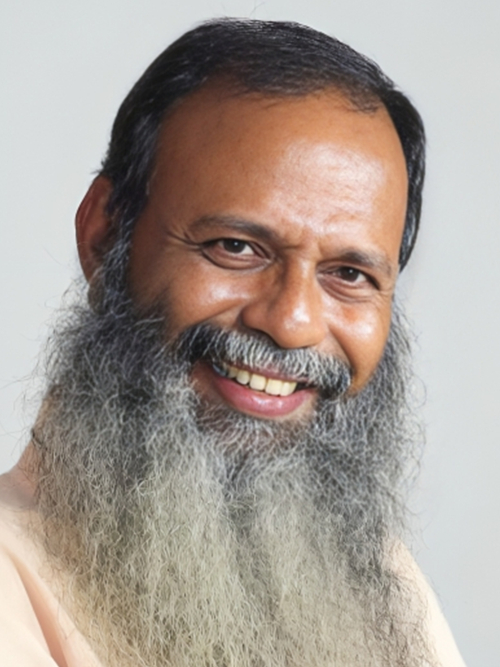

I am not sure if I have written about this before. It must have been in 1991 or '92. Eight of us went for a special type of retreat. It was a time when the high range regions of Kerala, especially the small and poor farmers, were financially suffering due to the disease that affected the black pepper vines and cardamom plants and their prices went down. Fr. Sebastian Kizhakkekuttu of the Pala diocese, Br Mathew Paikada, my classmate Br Anto Arackal, and our theology students Alex Kizhakkekadavil, Francis Edattukaran, Jose Edattukaran, Bobby Kattikkad, and myself, were eight.
What was the method of the Retreat? Our retreat program was to get to see the poor people and to meditate on the divinity that was revealed through them. The hilly region of Idukki district was chosen for this. Each of us were only to have enough money to travel by bus from Pala to Kanjikuzhi in Idukki via Kottayam and return back from about the same distance. The team leader had a little bit money, maybe to buy five pounds of rice or something like that, if necessary. The plan was as follows. The retreat would last five days. The journey would be in the guise of ordinary people. If there was no real need, not necessary to reveal our identity. When asked, it would be enough to say, 'we just came down to see these places and you guys'. The place to meet together in the evening would be decided every morning. It would be a venue somewhat 10 miles away. Since it was the vacation time, the Government L. P. schools would be deserted and would lay open. Our nights would be spent there.
We would walk two by two, everyday, with a new companion. We would talk to people we met on the way. We would ask them about their lives. We should get water or food by asking for it from the people. We were only allowed to carry a small sling bag. In it, we would have to have only the minimum of things. We could bathe in rivers or streams. We would wash our clothes daily and get them dried at night. Therefore just one set of clothes and innerwear was enough. A little piece of bath soap, laundry soap and a little bit of tooth powder would complete the toiletries. When we get together in the evening, everyone would share each one's experiences of the day and pray together.
On the first many of us felt so shy. But each day brought new experiences. If you ask them about agriculture and life, they would reluctantly admit that unlike in the past it wouldn't be possible to subsist if one had only half an acre or an acre of land. All their plants got destroyed. But they had very few complaints.
We walked in different routes, two by two, conversing with the people we met on the way, sometimes joining them for some time in their manual work in the field, when thirsty drawing water from the public and private wells, washing our hands and feet in streams and having a cold bath in rivers.
Some areas were thinly populated. Even in the poorest huts that reminded on the rocky grounds or on top of hills, if we asked for some water to drink, and if it were noon, they would welcome us, offer us a portion of their rice porridge or the cassava dish that they had. Even when we said that we had no money to pay, the poor tea vendor was generous enough to offer us tea with cream for free. Some people gave us black tea with jaggery.
Two women who had a load of firewood on their head walking to the market would tell us that after two turns of the winding road was their house, yes a little house, and that the door isn't locked. They insist us that we should go in, eat the rice and curry that could be found in the kitchen and be on our way.
Another family would invite us, saying that the well at the local L. P. School is dried up, and therefore we could stay in their house, then offers us dinner, and leaves their small house for us to sleep while they cuddled for the night in their thatched kitchen.
Not a single one of those little ones complained or spoke angrily to this group of young people who seemed wandering without money in their bags. Those humble people showcased to us what God's love, mercy and compassion are. They belonged to different castes and religions. This FB note wouldn't have enough space to write down the many experiences of care, compassion and generosity we experienced on those five days.
Praise be to God, who reveal the secrets of the Kingdom of God, hidden from the wise and the learned, to these humble and poor ones. Yesterday when I wrote that 'the poor are our teachers', these old memories came rushing to my mind and I felt like writing this down.
Thirty-three some years have gone by. Today, such government schools or poor huts may not be there anymore in Kerala. However, even to this day, I don't think any of us have forgotten a bit any good feelings that different type of retreat offered us and the wonderful people we encountered on those days!





















